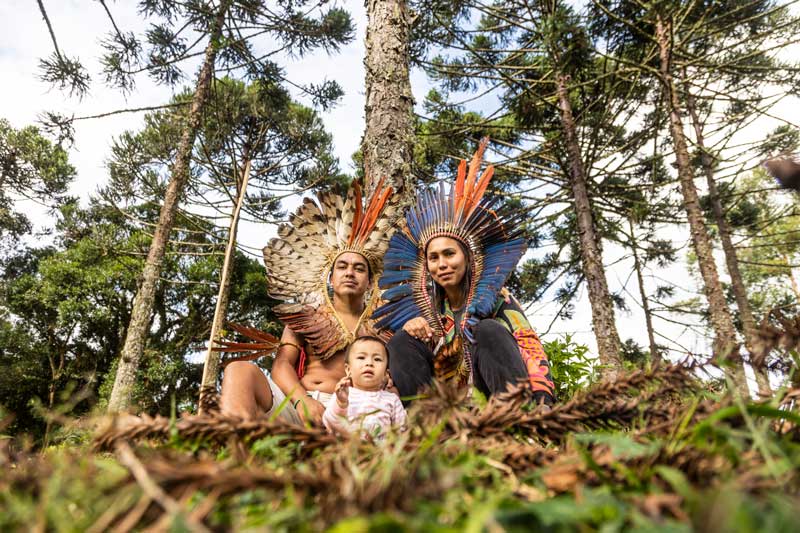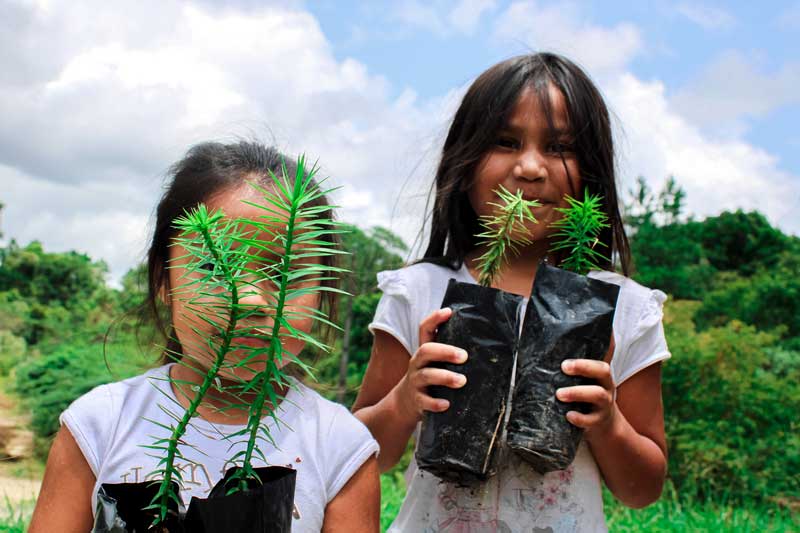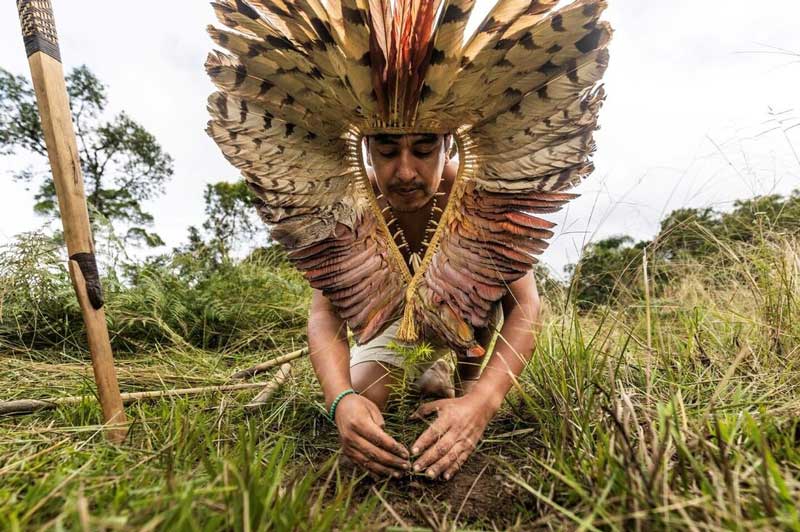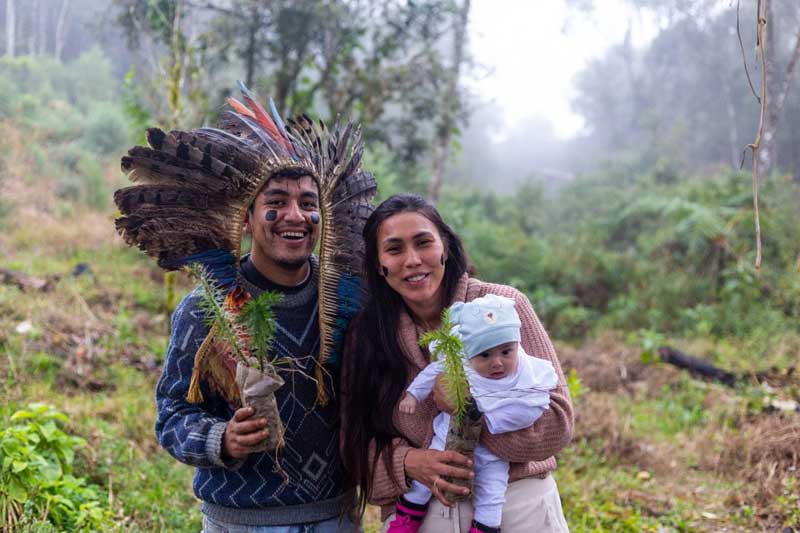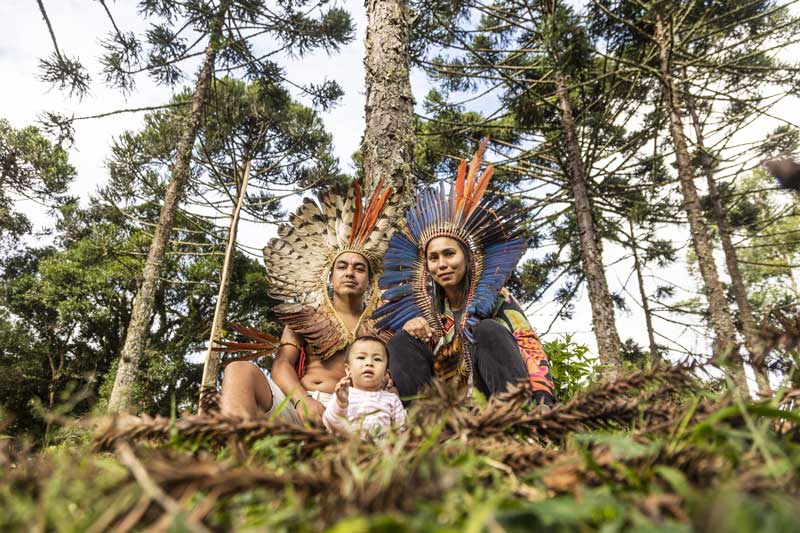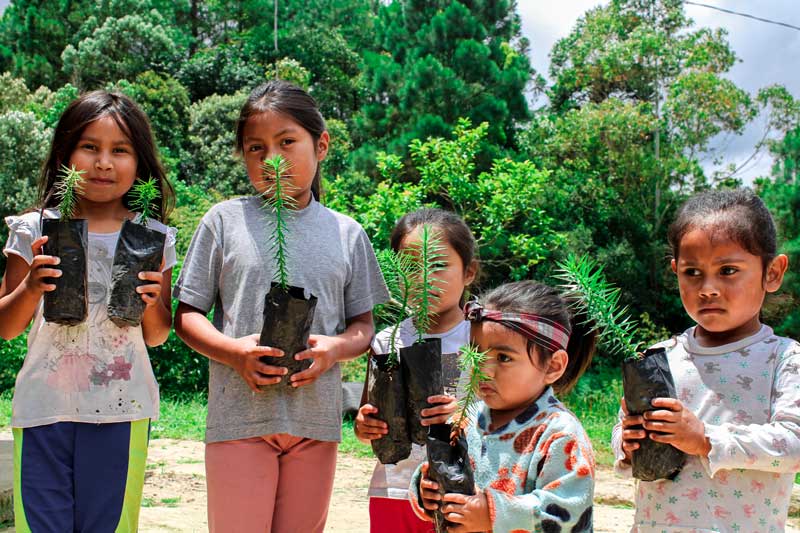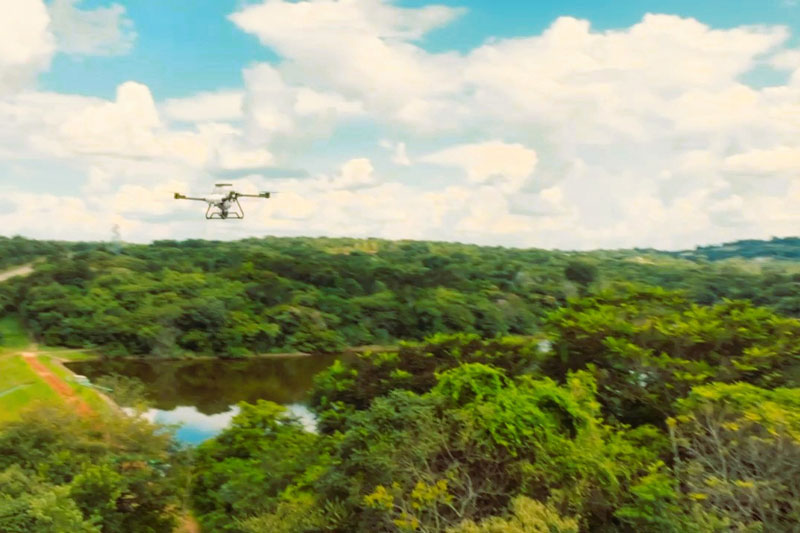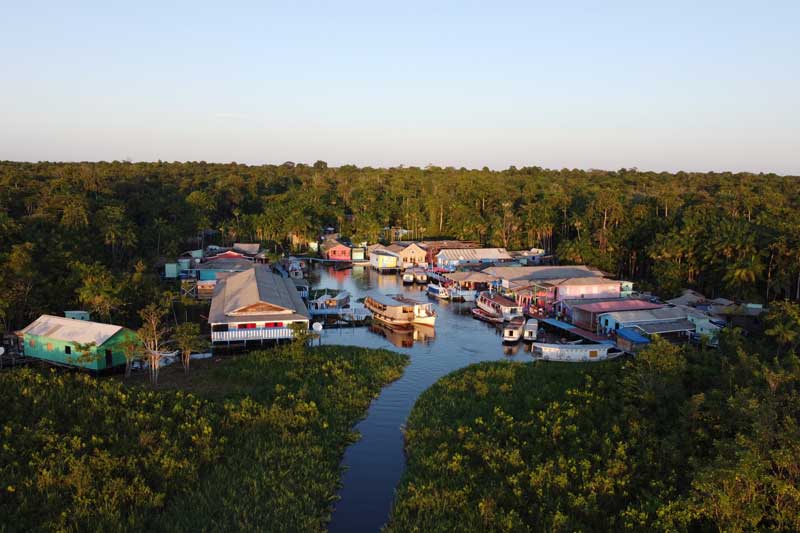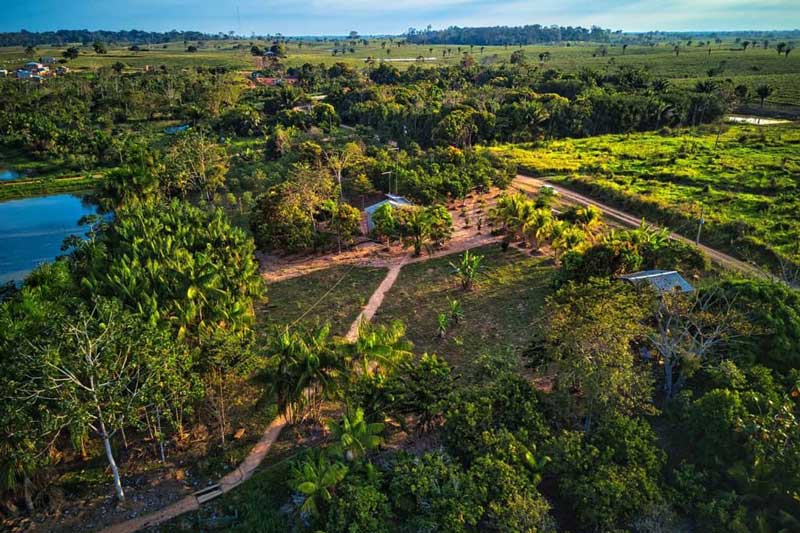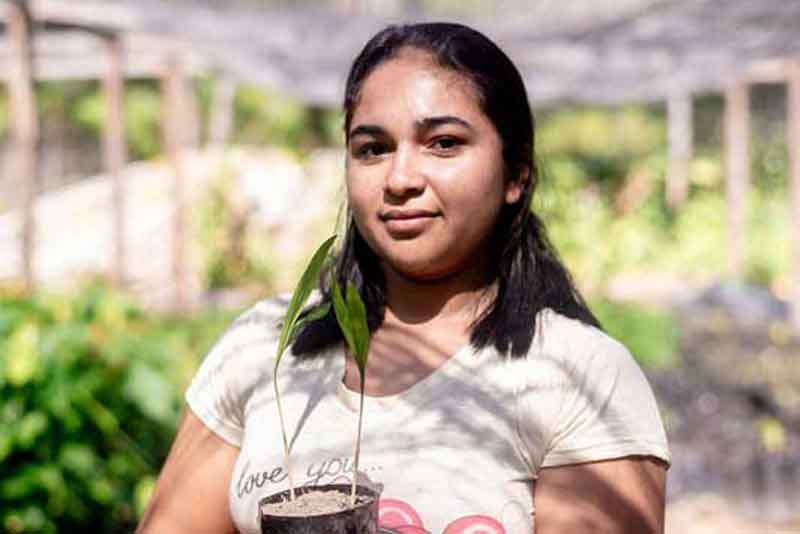The Alok Institute supports the “Araucaria Tree Preservation” project in Santa Catarina, which involves the creation and planting of 25,000 Araucaria seedlings and the revival of the traditional harvest festival – “Sapecada do Pinhão,” not held since 1950. This initiative is carried out by the Zág Institute, led by young indigenous people of the Xokleng ethnicity from the Figueira Village.
The organization has already planted over 77,000 pinon tree (Araucária) seedlings, the most important food for the village’s diet and also used in medicine production. Each pinion, planted in biodegradable bags, can produce a seedling that takes about a year to germinate.
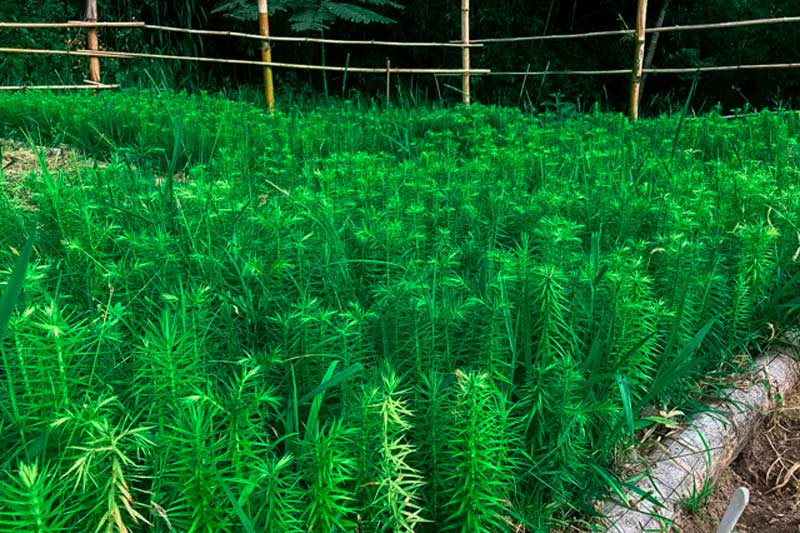
Fotos: Arquivo Instituto Zág
The reforestation process involves the entire community of more than 2,000 indigenous people. The reforestation of a 14,000 hectare area and the preservation of traditional knowledge around the tree known as Zág are the main missions of the Zág Institute. The Zág tree (Araucaria) holds sacred and symbolic value for the Xokleng people, but it is currently on the verge of extinction due to centuries of uncontrolled exploitation. The Araucaria Forest or Pine Forest is part of the Atlantic Forest biome.
With resources donated by the Alok Institute, the seedling nursery will be renovated, tools for planting and harvesting will be purchased and the Sapecada do Pinhão festival will take place after 70 years.
International Award
Zág Institute is the only Brazilian organization among the winners of the prestigious Equatorial Prize in its 2023 edition. This initiative by the UNDP (UN) recognizes indigenous groups demonstrating sustainable development and celebrates them on the international stage. The award ceremony broadcasted online on November 7, 2023 was sponsored by Alok Institute.**
About the Xokleng People:
In the early 20th century, Xokleng indigenous people in Santa Catarina were harshly fought and nearly decimated by “bugreiros” – militiamen hired to attack indigenous people. Only 104 people remained after the genocide. In 1989, the Brazilian government built a dam, flooding a significant portion of their land. Yet, the Xokleng people resisted, and today, there are over 2,000 Xokleng living in south Brazil.
In 2019, the state government of Santa Catarina, through the Environmental Institute, evicted the Xokleng people, claiming they had illegally occupied two conservation units: Serra da Abelha and Sassafras Biological Reserve. The Xokleng appealed the decision but, once again, were confronted by the State with an expired deadline to justify the eviction. The case reached the Supreme Court, whose recent verdict sided with the Xokleng people and rejected the Marco Temporal doctrine.
Atlantic Forest:
The Atlantic Forest extends from Northeast Brazil south to the Brazilian Atlantic coast, northeast Argentina and east Paraguay. It is one of the planet’s most diverse ecosystems, second only to the Amazon.
The forest in the Ibirama-Laklano indigenous land in Santa Catarina has been greatly destroyed due to the high commercial value of Araucaria wood. The rampant deforestation of ‘Araucaria angustifolia,’ a native variety from southern Brazil, led to the species being officially listed as endangered flora in the country in 2022. The long-trunked trees, rough bark and candlestick-shaped branches yield wood and pinions – highly nutritious seeds that form the basis for the Xokleng’s diet.
About the Zág Institute:
Established in 2017, Zág Institute is led by young Xokleng indigenous people from the Figueira Village in the southern part of the country. Its main activities revolve around reforestation and preserving traditional knowledge related to the Araucaria tree, known as Zág.
The Zág tree holds sacred and symbolic value for the Xokleng people but is currently on the verge of extinction due to centuries of uncontrolled exploitation. Since its foundation, the institute has planted 77,000 thousand Araucaria seedlings.
Through its actions, Zág Institute recognizes the interdependence between the Zág tree and the Xokleng people.

